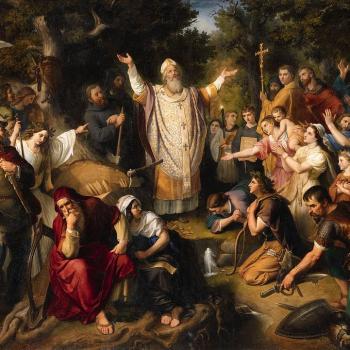As you read through the various perspective on the theology of the Cross in among the Church Fathers there are a number of things that may stick out to the attentive reader. Fist you may notice that there is little to no discussion about salvation that surrounds what has come to be the central understanding of salvation among many Christians today, which sees Jesus as vicarious satisfaction of God’s wrath. Jesus is not seen as taking on a penalty for sins. God’s anger is not directed at Jesus. Rather the focus was on becoming unified with Jesus in obedience and in death. The death of Jesus is related to the life of a believer and the death of a believer is related to the life of Jesus.
The fathers of the church did not view theology as being dangerous if it denied God’s wrath, but rather if it denied God’s suffering. If Jesus was not both fully God almighty and fully a suffering man then they believed the Gospel would be lost. The Gnostics denied that God suffered by spiritualizing Him so much that his physical reality was only illusory. The Arians denied God suffered by declaring that the person of Jesus Christ was somehow less then God. The Nestorians denied God suffered by parsing the human from the divine in Christ into two different persons. All of these views were condemned.
The reality of a God who entered true human sufferings was the basis of hope that true human suffering could be healed. Any attempt to soften this reality was seen as effectively destroying the Gospel. The cross was the place of salvation because it was the place where God took on everything that the sinful world could dish out and instead of being overcome by it, He overcame. In that simple fact lay the hope of the early church that God could overcome sin, death, and the devil in the life of every other human being. This is why Gregory Nazianzen declared in his famous formula:
“Το γαρ απροσληπον αθεραπεντον ο δε ηνωται τω Θεω, τουτο και σωζεται,”
That which is not assumed can not be healed, but that which is united to God is saved.
No matter what else someone might say about the work of Jesus on the cross, any understanding of the Cross that the church accepted had to conform to this simple rule.













